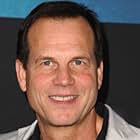A documentary based on the book "War Letters; Extraordinary Correspondence From American Wars" by Andrew Carroll.A documentary based on the book "War Letters; Extraordinary Correspondence From American Wars" by Andrew Carroll.A documentary based on the book "War Letters; Extraordinary Correspondence From American Wars" by Andrew Carroll.
- Director
- Writers
- Stars
Joan Allen
- Self - Reader
- (voice)
Jordan Bridges
- Self - Reader
- (voice)
Gerald McRaney
- Self - Reader
- (voice)
Esai Morales
- Self - Reader
- (voice)
Edward Norton
- Self - Reader
- (voice)
Bill Paxton
- Self - Reader
- (voice)
Giovanni Ribisi
- Self - Reader
- (voice)
Kyra Sedgwick
- Self - Reader
- (voice)
Kevin Spacey
- Self - Reader
- (voice)
Eric Stoltz
- Self - Reader
- (voice)
Lawrence Turner
- Self - Reader
- (voice)
- Director
- Writers
- All cast & crew
- Production, box office & more at IMDbPro
Featured review
In many ways, this film reminds me of the HBO documentary "Unchained Memories: Readings from the Slave Narratives"--as the past is brought to life by having modern actors read the accounts of many folks long dead. However, "Unchained Memories" was a bit more effective because the narratives were longer and the actors were sometimes a bit more convincing in their readings of the lives of ex-slaves. This isn't to say that the letter read in "War Letters" was done badly--just not quite as good. Part of it was because the portions of the letters they read were often very short--and so when pieced together, it seemed a bit rushed. It also didn't help that the letters bounced about from war to war. One moment, you'll hear a letter from WWII, and then one from the Civil War and then one from WWI. I think doing them in sequence or looking for a theme to link the letters would have helped. HOWEVER, despite these complaints, it's still an exceptionally compelling film. You can't help but be affected by the letters--particularly since many were written by guys who did not survive the war.
A few of the noteworthy letters in the film:
It was surprising how much slipped past censors, such as the guy talking about how many ships were left that were battle-worthy following the attack on Pearl Harbor!
While most of the letters were very sad, a few were funny--such as the one written by the nurse about the guy who wanted her to kiss him goodnight.
The letter the black soldier sent to the magazine was surprising, as you would have thought during WWII they wouldn't have published such a letter. It was brilliantly written and quite sad.
I noticed that not all US wars are represented. The War of 1812, Mexican War and Spanish-American War have no entries. Also, there is only one from the Revolution. Most are from Vietnam and WWII. Also, perhaps the best and saddest letter ever (the famed Sullivan Ballou letter) was not used in this film--probably because it was already used by Ken Burns in his Civil War mega-documentary.
By the way, be careful who you see this film with. There is some very, very disturbing film and letters. I am NOT saying to skip it--just don't see it with kids in the room. After all, seeing the horror serves to remind us that war is hellish and to be avoided if at all possible.
A few of the noteworthy letters in the film:
It was surprising how much slipped past censors, such as the guy talking about how many ships were left that were battle-worthy following the attack on Pearl Harbor!
While most of the letters were very sad, a few were funny--such as the one written by the nurse about the guy who wanted her to kiss him goodnight.
The letter the black soldier sent to the magazine was surprising, as you would have thought during WWII they wouldn't have published such a letter. It was brilliantly written and quite sad.
I noticed that not all US wars are represented. The War of 1812, Mexican War and Spanish-American War have no entries. Also, there is only one from the Revolution. Most are from Vietnam and WWII. Also, perhaps the best and saddest letter ever (the famed Sullivan Ballou letter) was not used in this film--probably because it was already used by Ken Burns in his Civil War mega-documentary.
By the way, be careful who you see this film with. There is some very, very disturbing film and letters. I am NOT saying to skip it--just don't see it with kids in the room. After all, seeing the horror serves to remind us that war is hellish and to be avoided if at all possible.
- planktonrules
- Mar 28, 2012
- Permalink
Storyline
Details
- Release date
- Country of origin
- Official site
- Language
- Also known as
- War Letters on American Experience
- Production companies
- See more company credits at IMDbPro
- Runtime1 hour
- Color
- Sound mix
- Aspect ratio
- 1.33 : 1
Contribute to this page
Suggest an edit or add missing content



















